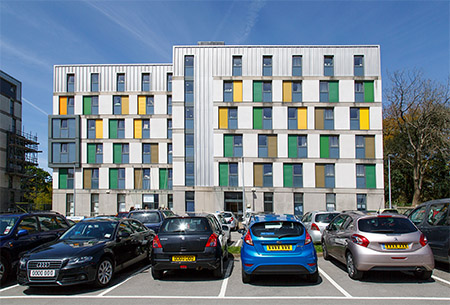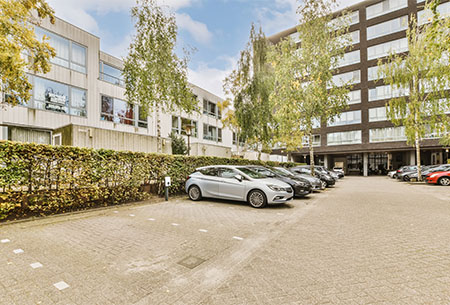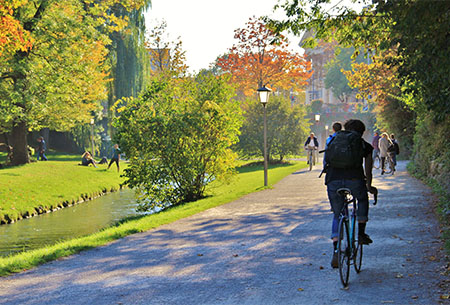
University life is an exciting phase filled with new experiences and challenges. For many students, it’s a time when the idea of having a car on campus becomes a consideration.
Driving to university can offer convenience, freedom, and a sense of independence. However, it also comes with responsibilities and decisions that require careful consideration.
Here’s your comprehensive guide to navigating the ins and outs of taking your car to university.
To Drive or Not to Drive: Should I Take My Car to Uni?
The decision to take your car to university hinges on several factors:
Location and Accessibility
Consider the location of your university. Is it in a busy city or a more remote area? Explore the public transportation options available and the convenience of reaching essential places without a car.
Parking Availability
Research the parking facilities on campus. Universities often have designated student car parks, but they can fill up quickly.
If you’re living in a private accommodation and want to have your car outside your flat or house, do you need a permit to park in the area? Is the area busy with students too? The area could get overloaded with student cars so you’d have to take into consideration that your car might not always be parked in sight.
Assess the availability, cost, and proximity of parking spaces to your classes and accommodation.
Frequency of Use
Evaluate how frequently you’ll need your car. If you plan to travel home frequently or explore nearby areas, having a car might be beneficial.
However, think about if the train route works out cheaper. Are you on a direct train link? Students can purchase a 16-25 Railcard that allows for discounted train travel, which could save time and money (especially if you’re too hungover to drive home).
Costs Involved
Factor in the expenses associated with having a car at university, such as fuel, car finance payments, insurance, maintenance, parking permits, and potential repairs.
It’s already hard enough trying to navigate this new adult life of having to pay for your food shopping, laundry, and nights out (plus the cost of university essentials like textbooks) – so there would be nothing worse than an unexpected payment because of your car.
Navigating the University Car Park: Parking at Uni
If you do opt to take your car, there are a few things to think about with the university car parks.
Securing a Parking Permit
Most universities require parking permits to use their car parks. Apply for a permit well in advance, as spaces might be limited.
If you’re a first-year university student and you’re 100% about the university of your choice, apply for it sooner rather than later.
Typically, if you’re a second-year, third-year or postgraduate student, housing arrangements are sorted by Christmas to ensure you get a great deal and the accommodation of your choice. So, make sure you don’t leave your permit until the last minute as the availability may get less and less – especially if you’re living in a student residential area.
Understanding Parking Rules
Familiarise yourself with the university’s parking regulations to avoid fines. Be mindful of designated areas, time limits, and any special rules or restrictions.
Arriving Early
To secure a spot in the student car park, arrive early, especially during peak hours or at the beginning of the semester.
Car Insurance for University Students: A Must-Know
If you can’t live without your car for the next three years of your life, then you will need to double-check your car insurance with a fine toothcomb. This is because you may have declared information that may not be valid any more if you do take it away with you. So what can you do?
Check Your Existing Insurance
Inform your insurance provider if you’re taking your car to university. Some policies might require an update, especially if you’ll be parking your car in a new location.
University Student Car Insurance
Explore insurance options specifically tailored for students. These policies might offer discounts or special coverage suitable for university-goers.
Coverage for Students Away at University
Some insurance plans cater specifically to students who are away at university. These plans often consider the reduced usage of the vehicle and adjust premiums accordingly.

Driving to Uni: Tips for a Smooth Ride
Let’s give you the best tips to get yourself out on the road in a new lease of independence whilst at uni.
Maintenance Check
Before embarking on your journey, ensure your car undergoes a thorough maintenance check. This includes checking the tyres, brakes, fluids, and overall vehicle condition.
Plan Your Routes
Familiarise yourself with the routes to and from university, especially if you’re new to the area. Consider alternative routes in case of traffic or road closures.
Carpooling
Consider carpooling with friends or classmates who live nearby to save on fuel costs and reduce the environmental impact.
Environmental Considerations
If feasible, opt for eco-friendly transportation methods such as cycling or using public transport to reduce your carbon footprint.

Final Thoughts:
Taking your car to university can offer convenience and flexibility, but it requires careful planning and consideration of various factors. Assess your individual circumstances and needs before making the decision. Factor in costs, parking availability, and the overall convenience it offers against other transportation options available to you.
Ultimately, whether you choose to take your car to university or not, prioritise safety, responsible driving, and adherence to parking regulations to ensure a smooth and hassle-free experience throughout your academic journey.